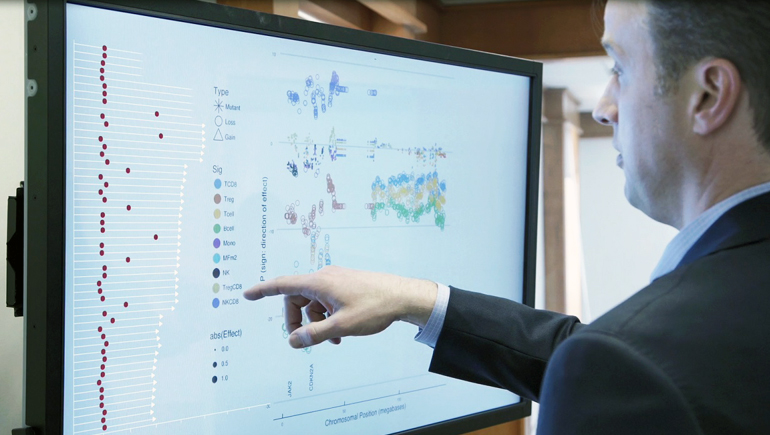
Joe Szustakowski, Vice President, Translational Medicine Bioinformatics
Recently, Szustakowski sat down to discuss the role that bioinformatics and translational medicine have played in identifying potential predictive biomarkers that may help select patients for oncology therapy.
Question: What can you tell us about translational medicine bioinformatics and its role in cancer research?
Translational medicine bioinformatics is an interdisciplinary field consisting of biology, computer science, statistics and engineering which allows us to analyze large, raw data sets – including genomic data – and distill them into useful biological signals, or biomarkers. Once identified, these biomarkers can provide us with information on a patient’s specific tumor biology, as well as how they might respond to treatment.
The emergence of new therapies, Next Generation Sequencing technologies and advanced bioinformatics methods have made it an exciting time to be in cancer research. When I was first starting out in bioinformatics 20 years ago, the Human Genome Project was in full swing but not yet complete. We didn’t quite know back then how we would use that information, but as a field, we knew that it would be important to unlocking insights about many different diseases, including cancer. Now, all of our tools and technologies have matured to the point where we can expand our knowledge of the disease and identify potential new biomarkers.


